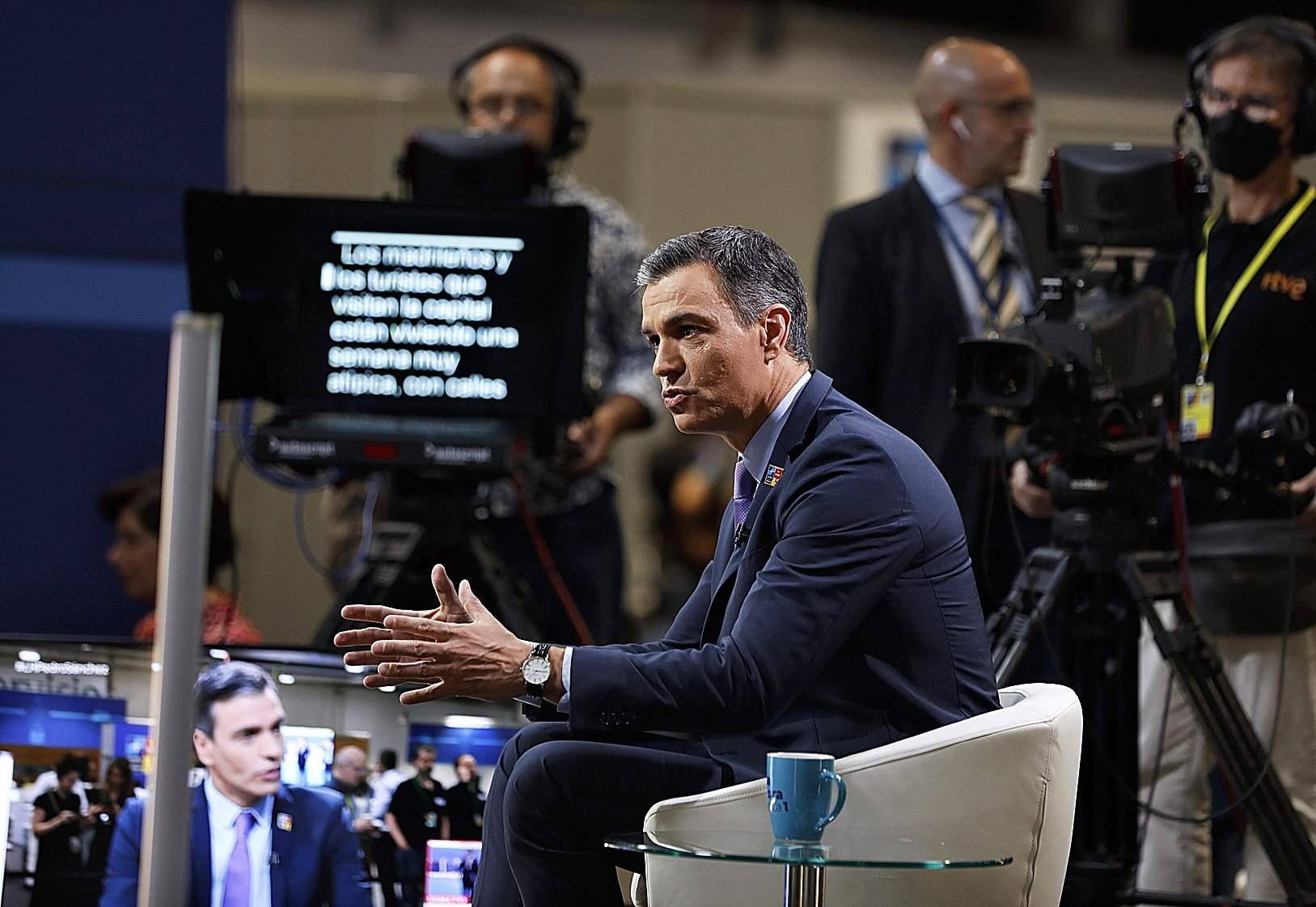Pedro Sánchez knows that words are one thing and facts are another. And that NATO, whose summit Madrid hosted this week, wants facts. For this reason, the President of the Government has promised his word, delaying the planned calendar, yes, to place Defense investment at 2% of GDP in 2029. And he is determined to increase Defense spending in the 2023 Budgets. A circumstance that can compromise the already complex approval of public accounts, because governance partners, including United We Can, reject this increase.
In La Moncloa they knew that the announcement of raising defense spending would make their partners stir. But also that there is no other choice because “Spain’s capacity for influence in the international context is going to be measured by its European and Atlantic commitment to the Defense budget,” Sánchez acknowledged yesterday. The way to increase military spending has two paths: on the one hand, the Prime Minister wants to bring to Congress a State pact that shields reaching the 2% of GDP committed to NATO in 2029.
This pact does not worry the Government because they consider that although they will not have the support of many of their left-wing and nationalist partners, they take it for granted that the PP will support it. That has been revealed in the last few hours by the popular ones, although Alberto Núñez Feijóo yesterday asked the Executive for “coherence in its entirety” to approve this State pact, emphasizing the division of criteria between the PSOE and United We Can in this matter. Feijóo, in any case, anticipated that Sánchez can count on the popular ones for “State policies.”
The potholes are on the way to reach that 2% of GDP in 2029, because Sánchez wants to start walking that path in the 2023 Budgets. The Chief Executive has not anticipated how much he wants to increase it, but set the goal seven years ahead allows you to adjust the progressivity. In any case, the 2022-2025 Stability Program prepared by the Treasury states that this increase will be two tenths of GDP in 2023. Currently, according to NATO data, Spain allocates 1.02% of GDP; 12,208 million.
It happens that United We Can, ERC, Bildu, Más País, Compromís or the BNG, all governance partners, have already made explicit their refusal to spend more on Defense in the next public accounts. The argument is common to all of them: if more is allocated to Defense, money will be withdrawn from other items, such as social spending, and all in a context of socioeconomic crisis. In La Moncloa they know that the PP will support a State pact on Defense, but not General Budgets. Therefore the accounts are at the mercy of the support of their partners.
Minister Ione Belarra already warned the PSOE yesterday that Sánchez’s intentions have to “translate into a budget agreement” and that the numbers in Congress “are stubborn”, alluding to the fact that Budgets are only possible with the support of the so-called investiture block. «Spain needs more guaranteed income, that people are treated in Primary Care in 24 or 48 hours, that people have a specialist in the doctor. No more tanks and no more weapons,” Belarra warned.
Later, the division of the Government was certified when United We Can challenged the PSOE by voting in a motion in Congress against increasing defense spending and the “results” of the NATO summit.
In Moncloa they show their confidence that this increase in defense spending will not complicate coexistence even more and they call for “normalizing” different opinions. They consider that the purple ones would not make the Budgets of their own Government fall. Because, in addition, they remember that the intention is to present numbers that “reinforce the Welfare State, guaranteeing the excellence of Spanish public health, promoting a fair and equitable tax system”, among other axes.
That is the trump card: trying to convince their partners with socioeconomic spending that makes it difficult to explain their vote against and dilutes any increase in military spending. “We are taking all the initiatives that we take to Congress,” they recall in the Government, who consider that the Accounts “must reflect the reality of the current context, where everyone has realized the importance of security.”
Despite this a priori adverse scenario, Sánchez is determined to increase military spending as early as 2023 and to present the Budgets “in due time and form”. Thus, he already champions a pedagogical speech to try to neutralize the foreseeable refusals of his partners: “Increasing the Defense budget generates jobs, wealth and opportunities.”
Conforms to The Trust Project criteria
















